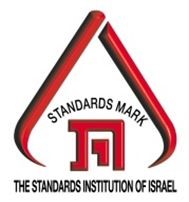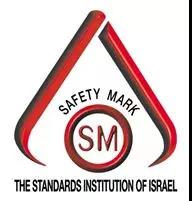COMPANY
News
HOME > COMPANY > News
Israel Product Certification-SII
Date:2021/6/3 Clicks:955
1. Introduction to SII certification
According to Israel's Standards Act of 1953, The Standards Institution of ISrael (SII) is Israel's official standards agency. SII is a non-governmental organization, but it is directly managed by the Israeli government. Under the leadership of the Israeli Ministry of Industry, Trade and Labor (Ministry of Industry and Trade), it is responsible for standard setting, certification and product testing to ensure that products produced or imported in the country meet quality requirements . So far, SII has promulgated and implemented as many as 3000 Israeli standards, and the standard code is represented by "IS". For controlled electronic and electrical products, in accordance with regulatory requirements, starting from January 1, 2005, SII certification must be applied for and obtained as a customs clearance and sales pass.
Israel, as the first country in the Middle East to become NCB, SII accepts the IECEE mutual recognition system for electrical product test certificates. According to the CB Scheme rules, SII accepts and recognizes CB reports and CB certificates, and only needs to test whether it meets the Israeli differences and additional requirements (including EMC certification standards). However, it should be noted that the product categories currently accepted by SII for CB transfer only include: lamps, information and office equipment, medical equipment, measuring instruments, electronic entertainment equipment, and capacitors.
2. SII certification product range
According to the "Standardization Law", Israel divides products into four levels according to the degree of harm they may cause to public health and safety, and implements different management:
Category I is the products with the highest degree of danger to public health and safety, such as household appliances, children's toys, pressure vessels, and portable foam fire extinguishers.
Category II is products with a medium degree of potential danger to public health and safety: including sunglasses, balls for various purposes, installation pipes, carpets, bottles, and building materials.
Category III is products with a low degree of risk to public health and safety: including ceramic tiles, ceramic sanitary ware, etc.
Category IV is for products that are only for industrial use and not directly facing consumers: such as industrial electronic products.
3. SII certification application process
1. StandardsMark Certification: Voluntary + Compulsory Certification. In principle, it is voluntary certification, but compulsory certification requirements are implemented for Class I products.
1) Compulsory products include: Class I products, including storage solar water heaters, plugs and sockets, lamps, ballasts, lamp holders, household gas appliances, portable electric immersion heaters, electric kettles, fire extinguishing devices, washing machines, refrigerators, Air conditioners, household heating/cooking/frying appliances, elevators, electric blankets, primary battery packs, etc. Please confirm with Saida if it is within the mandatory scope.
2) Certification process: SII product testing + SII first factory inspection + SII annual factory inspection = SII certificate
2. SafetyMark Certification: voluntary certification. It is also mainly for class I products. The main function of applying for this certification is to reduce the customs inspection procedures and enter the market in a short time. Unlike standard mark certification, safety mark certification does not require factory inspection.
1) Compulsory products include: Class I products. Please confirm with Saida if it is within the mandatory scope.
2) Certification process: SII product test = SII certificate
3. Type Approval of SII Type Approval: The method generally adopted at present. After the application is approved, the mark will not be granted, but the products are allowed to be imported and sold after the customs conducts the standard inspection before shipment. There is no factory inspection requirement.
4. SII Shipment Inspection: When the goods arrive at the port, the Israeli customs will test and inspect the products batch by batch. This approach is more risky.
Four, other information
Technical information: voltage frequency AC230V, 50Hz, plug SI 32
Is it mandatory: mandatory + voluntary
Validity period of the certificate: 1~4 years, based on the product, please confirm with Saida for details
Factory inspection requirements: only SII standard certification requires factory inspection
Requirements for the holder: a local agent is required to hold a certificate
If you want to know more about the requirements and details of SII certification, please contact our company quickly:
Guangzhou Saida Testing Technology Co., Ltd.
Unit 703,705, Tianan Energy-saving Technology Park Development Building, No.555 Panyu Avenue North, Panyu District, Guangzhou
Ms. Chen Xi
Mobile: 13825088768
Email: service@certitek.cn
Miss Xie Minshi
Mobile: 13560432236
Email: cs1@certitek.cn
Miss Chen Huomei
Mobile: 15975545208
Email: cs1@certitek.cn
According to Israel's Standards Act of 1953, The Standards Institution of ISrael (SII) is Israel's official standards agency. SII is a non-governmental organization, but it is directly managed by the Israeli government. Under the leadership of the Israeli Ministry of Industry, Trade and Labor (Ministry of Industry and Trade), it is responsible for standard setting, certification and product testing to ensure that products produced or imported in the country meet quality requirements . So far, SII has promulgated and implemented as many as 3000 Israeli standards, and the standard code is represented by "IS". For controlled electronic and electrical products, in accordance with regulatory requirements, starting from January 1, 2005, SII certification must be applied for and obtained as a customs clearance and sales pass.
Israel, as the first country in the Middle East to become NCB, SII accepts the IECEE mutual recognition system for electrical product test certificates. According to the CB Scheme rules, SII accepts and recognizes CB reports and CB certificates, and only needs to test whether it meets the Israeli differences and additional requirements (including EMC certification standards). However, it should be noted that the product categories currently accepted by SII for CB transfer only include: lamps, information and office equipment, medical equipment, measuring instruments, electronic entertainment equipment, and capacitors.
2. SII certification product range
According to the "Standardization Law", Israel divides products into four levels according to the degree of harm they may cause to public health and safety, and implements different management:
Category I is the products with the highest degree of danger to public health and safety, such as household appliances, children's toys, pressure vessels, and portable foam fire extinguishers.
Category II is products with a medium degree of potential danger to public health and safety: including sunglasses, balls for various purposes, installation pipes, carpets, bottles, and building materials.
Category III is products with a low degree of risk to public health and safety: including ceramic tiles, ceramic sanitary ware, etc.
Category IV is for products that are only for industrial use and not directly facing consumers: such as industrial electronic products.
3. SII certification application process
1. StandardsMark Certification: Voluntary + Compulsory Certification. In principle, it is voluntary certification, but compulsory certification requirements are implemented for Class I products.
1) Compulsory products include: Class I products, including storage solar water heaters, plugs and sockets, lamps, ballasts, lamp holders, household gas appliances, portable electric immersion heaters, electric kettles, fire extinguishing devices, washing machines, refrigerators, Air conditioners, household heating/cooking/frying appliances, elevators, electric blankets, primary battery packs, etc. Please confirm with Saida if it is within the mandatory scope.
2) Certification process: SII product testing + SII first factory inspection + SII annual factory inspection = SII certificate
3) Logo: as shown below:

2. SafetyMark Certification: voluntary certification. It is also mainly for class I products. The main function of applying for this certification is to reduce the customs inspection procedures and enter the market in a short time. Unlike standard mark certification, safety mark certification does not require factory inspection.
1) Compulsory products include: Class I products. Please confirm with Saida if it is within the mandatory scope.
2) Certification process: SII product test = SII certificate
3) Logo: as shown below:

3. Type Approval of SII Type Approval: The method generally adopted at present. After the application is approved, the mark will not be granted, but the products are allowed to be imported and sold after the customs conducts the standard inspection before shipment. There is no factory inspection requirement.
4. SII Shipment Inspection: When the goods arrive at the port, the Israeli customs will test and inspect the products batch by batch. This approach is more risky.
Four, other information
Technical information: voltage frequency AC230V, 50Hz, plug SI 32
Is it mandatory: mandatory + voluntary
Validity period of the certificate: 1~4 years, based on the product, please confirm with Saida for details
Factory inspection requirements: only SII standard certification requires factory inspection
Requirements for the holder: a local agent is required to hold a certificate
If you want to know more about the requirements and details of SII certification, please contact our company quickly:
Guangzhou Saida Testing Technology Co., Ltd.
Unit 703,705, Tianan Energy-saving Technology Park Development Building, No.555 Panyu Avenue North, Panyu District, Guangzhou
Ms. Chen Xi
Mobile: 13825088768
Email: service@certitek.cn
Miss Xie Minshi
Mobile: 13560432236
Email: cs1@certitek.cn
Miss Chen Huomei
Mobile: 15975545208
Email: cs1@certitek.cn
Add.:Room703、705/7F, Development Building, Tian An Hi-Teck Ecological Park, No.555 North Road Panyu Avenue, Panyu District, Guangzhou City, 511400, China
Tel.:020 - 39211670 Fax:020 - 39211640 E-mail:info@certitek.cn

